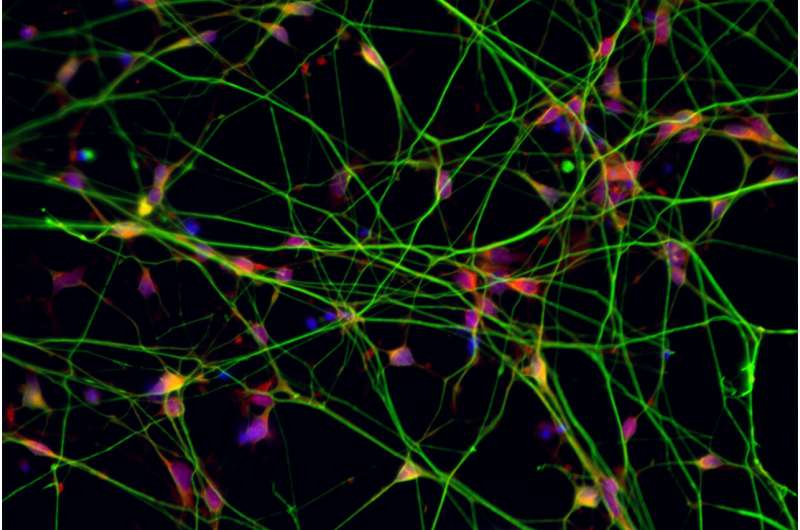Scientists think a peptide could stop, reverse damage to nerve cells

Researchers at the University of Illinois Chicago found promising results in their search for a treatment to stop nerve cell degeneration that happens in some types of disorders, such as hereditary spastic paraplegia and Parkinson's disease, which can cause significant disability.
The UIC research, published in the clinical neurology and translational neuroscience journal Brain, was led by Xue-Jun Li, the Michael A. Werckle Professor of biomedical sciences at the College of Medicine Rockford.
The study looked at how the long axons that carry messages between nerve cells in the brain can break down, which causes increasingly worse tightening of the leg muscles, leading to imbalance and eventually paralysis, in addition to other symptoms.
Previous research that used animal models to study the causes of the nerve cell degradation showed it may be a problem with the mitochondria, the powerhouse that drives the cells, that leads to the axons breaking down or not growing long enough.
Studying human nerve cells is difficult, but Li's team was able to use human cells that they transformed into stem cells and then modified to become nerve cells with the genetic disorder for a particular type of hereditary spastic paraplegia.
"What we found was that the mitochondria in these cells were breaking apart, what we call mitochondrial fission, and that caused the axons to be shorter and less effective at carrying messages to the brain," Li said. "We then looked at whether a particular agent would change the way the nerve cells function—and it did. It inhibited the mitochondrial fission and let the nerve cells grow normally and also stopped further damage."
What this means for the thousands of people affected by this type of genetic disorder is that this agent, a particular chain of amino acids called a peptide, could prove to be useful for a drug or other therapy to stop the nerve cells from becoming damaged or reverse the course of the damage. The researchers also suggest that using gene therapy could prevent mitochondrial damage, providing another strategy to reverse the nerve damage.
Zhenyu Chen, Eric Chai and Yongchao Mou of the College of Medicine Rockford are co-authors of the study, titled "Inhibiting mitochondrial fission rescues degeneration in hereditary spastic paraplegia neurons."
More information: Zhenyu Chen et al, Inhibiting mitochondrial fission rescues degeneration in hereditary spastic paraplegia neurons, Brain (2021). DOI: 10.1093/brain/awab488



















